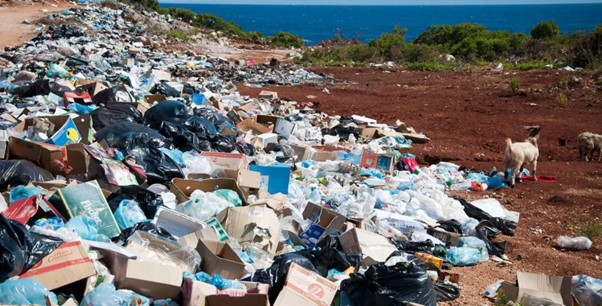The Impact of Plastic Pollution and How to Avoid It
Plastic pollution has become one of the most severe environmental challenges of our time. Every year, millions of tons of plastic waste end up in landfills, oceans, and ecosystems, causing harm to wildlife and human health. The widespread use of plastic in packaging, consumer goods, and daily essentials has made it difficult to manage its disposal effectively. To protect the environment, we must understand the impact of plastic pollution and take responsible steps to reduce it.
Introduction
Plastic pollution has become one of the most severe environmental challenges of our time. Every year, millions of tons of plastic waste end up in landfills, oceans, and ecosystems, causing harm to wildlife and human health. The widespread use of plastic in packaging, consumer goods, and daily essentials has made it difficult to manage its disposal effectively. To protect the environment, we must understand the impact of plastic pollution and take responsible steps to reduce it.
The Harmful Effects of Plastic Pollution
Damage to Marine Life
Oceans are the most affected by plastic pollution. Every year, millions of marine animals, including turtles, whales, and seabirds, die due to plastic ingestion or entanglement. Plastic waste in the ocean breaks down into microplastics, which enter the food chain and threaten aquatic ecosystems. The chemicals released from plastics further pollute the water, affecting marine biodiversity.
Human Health Risks
Microplastics are now found in the air, water, and even the food we consume. Studies have shown that these tiny plastic particles can enter the human body, leading to potential health risks such as hormonal imbalances, respiratory issues, and digestive problems. Plastic waste also contaminates drinking water sources, making it unsafe for consumption.
Land Pollution and Soil Degradation
Plastic waste takes hundreds of years to decompose, leading to long-term soil pollution. When plastic materials break down, they release toxic substances into the soil, reducing fertility and affecting plant growth. Agricultural lands are particularly vulnerable as plastic residues accumulate, hindering crop
Contribution to Climate Change
The production and disposal of plastic significantly contribute to greenhouse gas emissions. The burning of plastic waste releases harmful gases such as carbon dioxide and methane, accelerating global warming. Additionally, the extraction and processing of fossil fuels for plastic production add to the overall carbon footprint, making plastic pollution a major factor in climate change.
How to Reduce Plastic Pollution
Reduce Single-Use Plastics
One of the most effective ways to combat plastic pollution is by minimizing the use of single-use plastics, such as plastic bags, straws, and cutlery. Opt for reusable alternatives like cloth bags, metal straws, and biodegradable packaging. Encouraging businesses to switch to sustainable packaging solutions can also make a significant impact.
Practice Proper Waste Management
Disposing of plastic waste responsibly is essential to reducing pollution. Segregate waste at the source and recycle plastics whenever possible. Governments and communities should establish efficient waste collection and recycling programs to ensure proper disposal and minimize landfill accumulation.
Support Eco-Friendly Products
Choosing environmentally friendly products made from sustainable materials helps reduce plastic dependency. Brands that use biodegradable, compostable, or recyclable materials should be supported to encourage a shift towards sustainable production. Educating consumers about the benefits of green products can drive change at a larger scale.
Participate in Clean-Up Campaigns
Community participation in beach, river, and neighborhood clean-ups helps remove plastic waste from the environment. Volunteering for local clean-up events or organizing awareness programs can encourage others to take action. Schools and organizations can play a crucial role in spreading awareness about the importance of keeping our surroundings plastic-free.
Spread Awareness and Advocate for Change
Raising awareness about the dangers of plastic pollution is vital for long-term change. Educate others about sustainable practices, share information on social media, and support policies that promote plastic bans and eco-friendly alternatives. Advocating for stricter regulations on plastic production and disposal can bring about impactful environmental reforms.
Conclusion
Plastic pollution is a growing crisis that affects ecosystems, human health, and the planet’s climate. However, by taking conscious steps such as reducing plastic use, adopting sustainable alternatives, and promoting responsible waste management, we can contribute to a cleaner and healthier world. Every small effort counts in the fight against plastic pollution—let’s make a difference today.
.png)






Leave a Comment
Your email address will not be published. Required fields are marked *